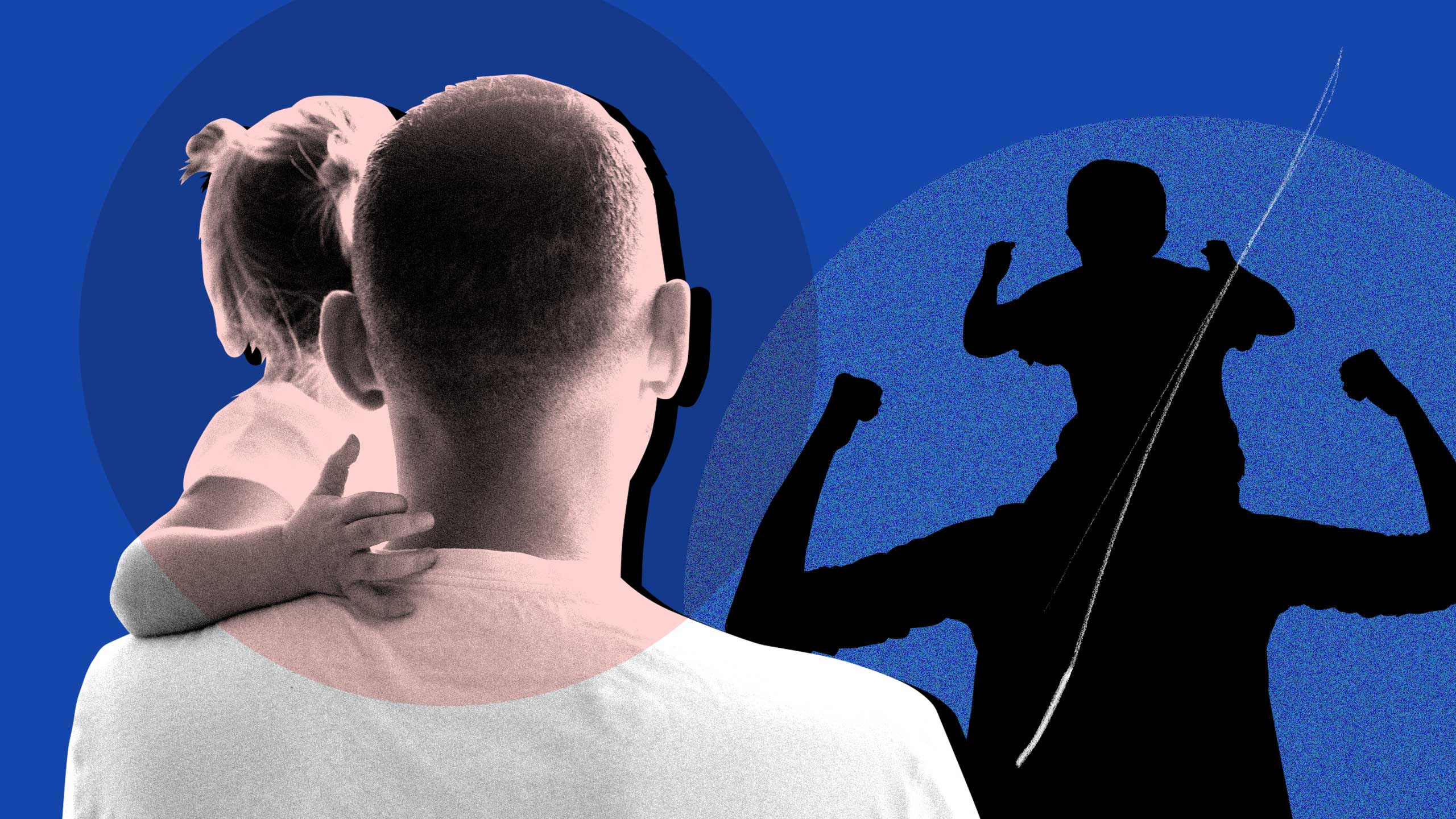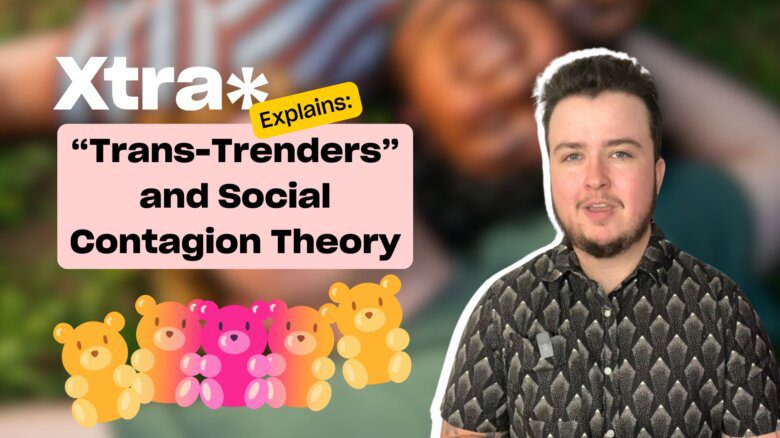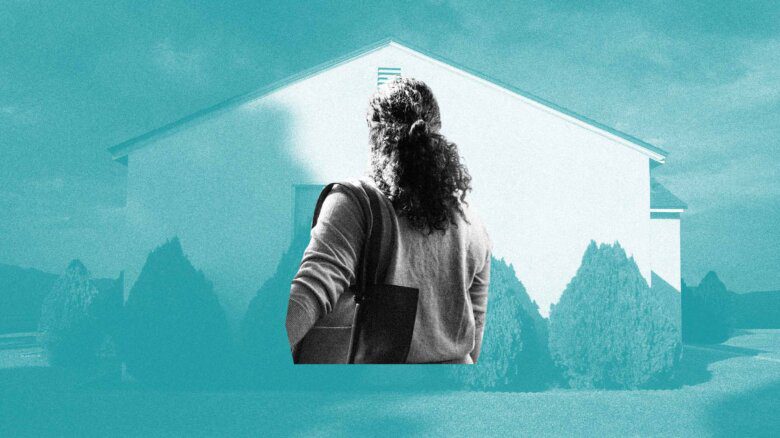When I began my transition, I swore I would never tell my child what to call me. I had a distinct memory of being six years old, in the back of my father’s Toyota, and calling my step-father “Daddy.” My mother had suggested it; we could refer to them both as Daddy and differentiate with first names, Daddy X and Daddy Y. I didn’t know anyone would object.
My father objected. He started screaming, the way he did when anything punctured his calm—he was an explosive device, that man, a canister of tear gas thrown into a crowded room. Perfectly still in one moment and in the next, the air was filled with smoke and everyone was left crying and struggling to breathe.
He was our father, he yelled, and he was never to be addressed by his first name, not ever. The disrespect of that, the fucking disrespect, like he was just some neighbour. We were never to call another man “Daddy.” Never, not as long as we lived. He was our father, the only father we would ever have, and we were to address him as such. “I made you,” I remember him saying, or maybe I just think I do because he always ended threats that way. His children were not people; we were extensions of him, meant to serve. “Fatherhood” described a property relation.
So I don’t tell my child what to call me. I am not going to give a four-year-old rules for how to address the people she loves. The most I’ve done is suggest that, since she calls me “he,” and most moms aren’t “he,” she could come up with a title for me. She thought about it. She decided to call me Jude.
My child calls me by my first name. Every day, I experience something my father terrorized a first-grader over—and I love it. Still, she lets slip with a Mom or a Mommy when she’s hurt or frightened, and eventually, I may look different enough to make this awkward. The person at school pick-up won’t look anything like the “mother” her teachers are imagining. Sooner or later, for her safety or for mine, we are going to have to talk about the word dad.
“I definitely have known trans dads for a long time, longer than I think the public discourse gives credit for,” says S. Bear Bergman, a Toronto-based author who has been writing about parenting and family for most of the past decade (and is a regular contributor to Xtra). “I sat in front of my television, watching Thomas Beatie on Oprah talking about being the first trans man to give birth, thinking, ‘I know a seven-year-old who would like to disagree with you.’”
Ever since that fateful Oprah Winfrey Show broadcast in 2008, conversations about trans fatherhood have tended to obsess over the detail of masculine pregnancy; cis audiences love the miracle, the medical marvel, the magician pulling a rabbit out of his hat. Yet trans men have always been fathers—presumably, for as long as human beings have been giving birth—and that shouldn’t shock us. Max, a Pennsylvania-based trans man who began his transition in 1999, told me that even at the earliest support groups he attended, there was always a kid or two on the periphery. “There is a lot of class stuff around queer people making babies,” Max says. “When you move out of middle-class and academic-type circles, lots of people just have kids. It’s pretty normal.”
Some of those dads give birth, and some don’t. Max, for instance, helped his then-partner conceive with assistance from a sperm donor, then completed the necessary paternity paperwork for an unmarried couple in their state: “My name is on [my kid’s] birth certificate as his father,” he says.
“‘Dad,’ in the dominant culture, is not a word overly freighted with positive associations.”
Either way, these details matter less than you’d think. We spend so much time establishing that transmasculine people can be fathers that we almost never discuss what kind of fathers they might be. It’s the second part that keeps me up at night. “Dad,” in the dominant culture, is not a word overly freighted with positive associations.
Research says that in the vast majority of straight couples, women still do nearly all of the domestic labour and childcare—and, just in case you are in any way unclear whose fault this is, women with husbands do more housework than single moms. During COVID-19, when daycares shut down, it was mothers who were forced out of work. Conservatives openly guffaw at the idea of men taking paternity leave, even (or especially) when they are gay dads like U.S. transportation secretary Pete Buttigieg and his husband Chasten. What could someone who isn’t female want with a newborn? Even dads who pride themselves on being active parents are doing less than they think. In one infamous survey for the New York Times last year, 45 percent of men estimated that they did “most” of their kid’s homeschooling during the pandemic. Only 3 percent of their wives agreed.
This is “Dad” in the best-case scenario: distant, ineffectual, the guy who shows up to toss a ball around on weekends but lets his wife handle everything else. The failure state is more like my own father: a king in his own living room or his own mind, a drinker, a yeller, a hitter, a literal patriarch. A father is a tyrant or a ghost, but he is not a parent. Parent is a verb; in most families, women do the parenting.
That’s what I thought, and then I had her: my motherless child, made and raised between my husband and me, with no woman to whom one might pass the buck. The integrity of our relationship depends on not recreating that exploitative, heteronormative dynamic, but if I can choose my own name, and my own body, then I can choose what “Dad” means to me. This is the part of trans fatherhood that interests me—how our self-creation might help us create fatherhood anew.
Most trans dads are significantly less up in their heads than I am. Bergman’s writing, for instance, moves me precisely because “fatherhood” is such an unselfconsciously joyous concept for him.
“Every parent in the world who has ever handed me their baby—which is a lot of parents, because I love babies—they all, as soon as they hand me the baby and I start doing that rock-and-bounce dance that you do when you hold a baby that’s being fussy?” Bergman told me in a phone call, while (let it be said) simultaneously folding laundry, negotiating school pick-ups with his husband and walking his dog. “No one looks at me and is like, ‘I don’t know that I feel clear about that man’s gender in this moment.’ The smell of dad is on me.”
That said, Bergman acknowledges that his teachers were good ones: “That comes to some degree from my dad, who is straight and cisgender and also wild for babies,” he says. For those of us who didn’t have those models, imagining a way forward can be more difficult.
“I grew up watching my father be both of the things that you talked about—like, rageful and also only occasionally present,” says Philadelphia-based author Krys Malcolm Belc. “The most intimacy I had with him was when he was coaching me in basketball and yelling at me from the sidelines.”
Belc’s book, The Natural Mother of the Child: A Memoir of Nonbinary Parenthood, is a wonder in many ways. What stuck with me most, though, was his account of living with his father’s anger and his fears that he might hand that rage down to his own children. Two of those children are likely cis boys, Belc tells me, which makes the question feel urgent.
“We get to open up space in masculinity more broadly, we get to open up ‘dad-hood.’”
“I just want them to see something different,” Belc says. “I think even more than modelling, like, ‘I spend a lot of time on domestic tasks’—and I think it’s good that my kids see me folding the laundry and cook—I think it’s much more important to model, like, apologizing and being a flexible thinker and actually listening to things that kids say.”
There is a reason why many men whiff that last part. Patriarchy tends to define masculinity almost exclusively through dominance, and there is no way to dominate a small child without harming them. Many of the parents I spoke to said that coming to masculinity through an unorthodox route allowed them some room to rewrite that script.
“I think we get to open up space in masculinity more broadly, we get to open up ‘dad-hood,’ let it be more expansive,” says Leigh, a Pennsylvania-based step-parent. “Like, I am actually the feelings person in our house.” It’s a choice made less from political commitment than personal aptitude; they’re training to become a therapist, “so it isn’t surprising, but I think that isn’t maybe what we expect.”
We’re told that the relationship between rage and masculinity, emotional illiteracy and masculinity, violence and masculinity, is one-to-one—a fiction that exists largely to excuse abusive men, who supposedly can’t help themselves. But the reality is more complicated. Belc, for instance, dates his most destructive anger to the years before his transition.
“The more outwardly or publicly masculine part of my life has actually been much more a time of nurturing and gentleness for me,” he says. “[There were] violent and difficult things about myself that I was afraid had direct tie-ins to masculinity, but actually, after examining myself, I realized it was more about the suppression of masculinity than anything else.”
This is the radical possibility of trans dads: the idea that embracing masculinity might be a help, and not a hindrance, when it comes to raising children. That possibility is transformative for cis fathers as well as trans ones. After all, if we accept the idea that all men are inherently bad parents, the only way to “be a man” is to be someone’s shitty dad. Trans people tend to spend a lot of time thinking about gender, which may help us bring more intention to it, but cis people can rewrite their parenting scripts, too. Everyone can, and most of us need to. The world is not awash in spectacular dads.
Eventually, you just do it. A more experienced trans guy offered this advice to me after I had directed to him one of many monologues about whether I was failing at gender. The Zen simplicity of it stays with me: eventually, you don’t think about whether the things you’re doing are “masculine.” You just accept that whatever you’re doing is something a masculine person does. The idea of “dad” won’t always terrify me. Eventually, just as I’ve slipped back into public feminism and strong opinions about The Crown without doubting my gender, I will stop psyching myself out about my ability to love my own child.
In the meantime, I try to treat her the way I wish I had been treated: not as an extension of me or a reflection of me, but as a real, interesting, very short person who lives in my house. She’s a person who listens to heavy metal in the bathtub and wears my socks to bed because her feet get cold, a person of open-hearted affection and cheerful ghoulishness: no-one else wishes me goodnight by hugging me, gently patting my head and saying, “I hope you don’t die in the toilet.” She has my husband’s social charm, and a stubbornness that I recognize in myself; she contains pieces of everyone who’s raised her—and, therefore, of the people who raised us, and the people who raised them, back to the beginning of history—but she is her own. I did not make her. She is making herself, just like I am, and for a very brief, very important time, I am allowed to share her process of creation.
A few weeks ago I woke up, in the pre-dawn dark, and headed to the kitchen for coffee. My husband was already there, packing our daughter’s lunch: tucking a tiny bottle of ice into the bottom compartment of the lunchbox to keep it cool, adding a hard-boiled egg and an orange and an almond-butter sandwich because peanut butter is not allowed within 500 yards of her school. The specific, sleepy competence of his movements was intensely familiar, in a way it took a second to place: He’s her mom, I thought, shocked by the recognition. No. Her parent, I thought, a few seconds later. Then, finally, I let myself see it: Her dad. One of them, a possibility I had never envisioned, with me all this time.


 Why you can trust Xtra
Why you can trust Xtra


